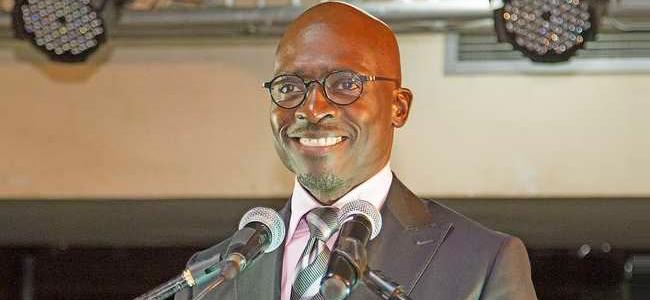
Despite making several pronouncements about an "inclusive growth action plan" that concerns some aspects of the ICT industry, finance minister Malusi Gigaba's medium-term budget statement is likely to be overshadowed by the South African Airways (SAA) bailout.
So says George Kalebaila, director for telecoms and Internet of things in Africa at IDC, who doesn't think ICT will be top of mind for Gigaba.
The finance minister will present his inaugural Medium-Term Budget Policy Statement (MTBPS) in Parliament tomorrow, following his surprise appointment to handle the country's purse strings.
The MTBPS lays out government's spending priorities for the next three years. It is regarded as an opportunity for the finance minister to make adjustments to the main budget delivered earlier this year.
Gigaba will deliver his speech amid a weakening economy, stunted growth prospects, revenue shortfall, as well as joblessness.
Opposition party, the Democratic Alliance (DA), says the minister should use the MTBPS to deal decisively with the 'big five' challenges to reversing the economic decline. These include boosting economic growth, stabilising public finances, supporting the independence of financial institutions, reforming 'zombie' state-owned enterprises and mitigating significant long-term fiscal risks.
Deadline-driven
Since taking office in March, Gigaba outlined specific deadlines for some government projects.
In July, he provided new timelines for the next steps in the process for the allocation of in-demand high-frequency spectrum for telecoms services.
In the same breath, the minister purported the rollout of phase one of SA Connect would commence in August. Despite this, there hasn't been any further communication with regards to the implementation of government's long-awaited broadband plan.
Gigaba sent shockwaves through the industry when it came out that government was open to discussing the disposal of its Telkom stake to raise funds to bailout SAA. Government holds a majority stake in Telkom, with 39.75% in shares valued at about R14 billion.
Pundits believed government selling its Telkom stake would be good for the telecoms company, but selling the shares to fund SAA without addressing serious problems at the national carrier was seen as pouring money down a bottomless pit.
Minimal expectations
Kalebaila doesn't have high hopes for the minister's budget policy review tomorrow, but says one would expect Gigaba to make mention of government's commitment to SA Connect.

Although, to be honest, he notes, the significance of this project is diminishing by the day as the private sector takes the lead. "It's become a feature of most budget speeches with little movement on the ground. So [I'm] not holding my breath."
Also, what could receive mention is the digital migration process that might free up spectrum to encourage further investment in 4G networks with downstream effect on data prices, he adds.
"If this was a usual budget speech, one would expect the minister to shine a spotlight on the ICT sector as key enabler of the digital economy that SA is fast becoming.
"He could offer specific incentives that might include duty exemption on low-cost smartphones to boost digital inclusion, encouraging government spend on ICT to improve operational efficiency as government is a key sector, encouraging innovation and growth by offering tax breaks or other incentives for small start-ups and investors in the sector, providing clarity on Telkom shares, and most of all commit significant investment in SA Connect as well as clarify government's position regarding Broadband Infraco."
Spectrum selling point
DA MP and telecommunications and postal services shadow minister, Marian Shinn, believes there will be some announcement on spectrum.
"Maybe a revised auction, but it needs to happen faster than he suggested in March and it has to be according to the terms of the verbal agreement that was made with the MNOs [mobile network operators] earlier this year, and that includes allowing them to operate in parallel to the WOAN [wireless open access network] with sufficient high-demand spectrum to be competitive and get a return on their infrastructure investment."
The finance minister might mention some financial support for the South African Post Office and its universal service obligations, adds Shinn.
Similar to Kalebaila's sentiments, Shinn does not expect much to be said about SA Connect.
"I don't see there being any further support to what has already been committed in the budget. Telkom shares - that seems to be on the back burner, which is a pity. It makes sense to sell the shares, but to multiple buyers and the proceeds must not be used to bailout failing SOEs. It must be invested in the sector, perhaps for SA Connect."
Urgent matters
In terms of what needs to be urgently addressed, Shinn believes Gigaba must look to incentivise growth in the sector so it can support the business and social development needs of the country, and make significant financial contributions to economic growth.
"To do this, he needs to ensure minister Siyabonga Cwele withdraws his legal challenge to ICASA [Independent Communications Authority of SA], release the spectrum for the auction, regulate the split of the MNOs into retail and wholesale operations, and assure ICASA's independence, changing its financial model so it has sufficient money to do what it is legally mandated to do to attract top-notch staff and revise the structural conflicts between management and the council.
"Much that is contained in the White Paper can be implemented by just fixing ICASA so it can do its job according to the ECA and ICASA Act."
According to the telecoms shadow minister, the ICT sector - particularly the infrastructure build - is critical for the economic growth of the country.
Incentivise investment in it through tax breaks, investigate the removal of import tariffs on electronic hardware, support ICT innovation in both hardware and software development, she states.
"He must be bold to make decisions that stimulate the sector to be innovative and world-class."
Share